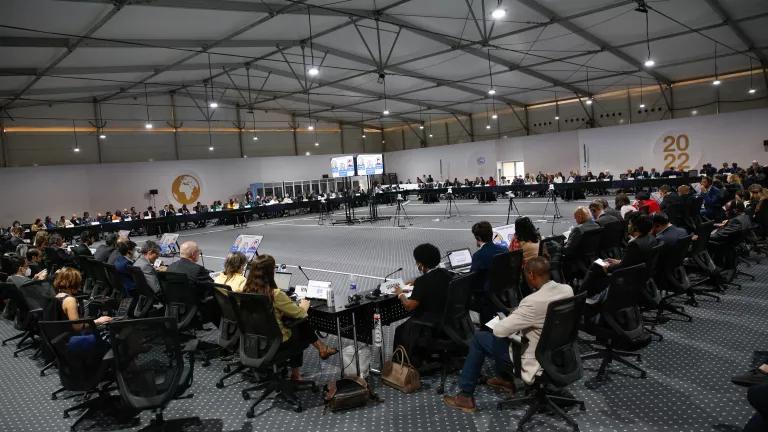Wuhan Law School Environmental Clinical Program
I tried my first jury case as a third-year law student in the UCLA trial practice clinical program, and won it. I was lucky to have had that experience and felt that it gave me an advantage over many of my litigation colleagues for years afterwards.
Recently, two NRDC colleagues from our Beijing office and I attended a conference with the staff and students of a new environmental law clinical program at the Wuhan University Research Institute of Environmental Law (RIEL). RIEL supporters from the Vermont Law School, the United Nations Environment Program (UNEP), and other NGOs were also present.
The RIEL clinic is designed to train Chinese law students and help the local community deal with environmental problems. American legal skills do not translate one-for-one to the Chinese legal system because China uses something close to the continental model where the court is more involved in factfinding, but many of our techniques of case development and evaluation of remedies are analogous. And suing governmental entities is uncommon, to say the least, in the Chinese system. Certainly not for international groups like NRDC, who do not have legal standing in the country.
Given all that, for maximum benefit for both training and advocacy, in my view, the matters handled by the students should be real (i.e. not mock trials) and should expose the students to the realities of client relations and to the contours of strategic thinking to achieve the client’s goals. Students should be in the forefront of the legal work as much as possible, not just following an instructor around. Ideally, the clinic supervisors should have substantive knowledge in the subject area that the clinic deals in: air quality, water pollution, soil pollution or the like, and the clinic may want to offer courses in substantive environmental law as well. The term of the clinic should be long enough to let a case play out as much as possible. Criteria for accepting cases should be clear in case of efforts at outside interference.
The RIEL program is timely because it can take advantage of the new Chinese public interest litigation article under environmental protection law that has more liberal notions of environmental standing than we typically have in the US. In addition, China is developing a network of specialized environmental courts.
For admitted lawyers in China, NRDC’s China program has for years conducted a Fellows program that brings in lawyers from private Chinese firms and gives them exposure to and experience in handling environmental law issues. Our hope is that these lawyers will then return to their firms with an interest in handling these cases and the skills to do so.
In my office in Santa Monica, we have summer legal interns every year and we often have externs during the school year. I try to take the students to court, administrative hearings or community meetings to let them see how legal theory is made real.
What the RIEL program, the NRDC Fellows program and our internships and externships have in common is the idea that there is no better way to learn legal practice that handling a real case that will have real consequences for the parties. I hope that the RIEL students can have as intense and meaningful experiences as I did many years ago at UCLA.



